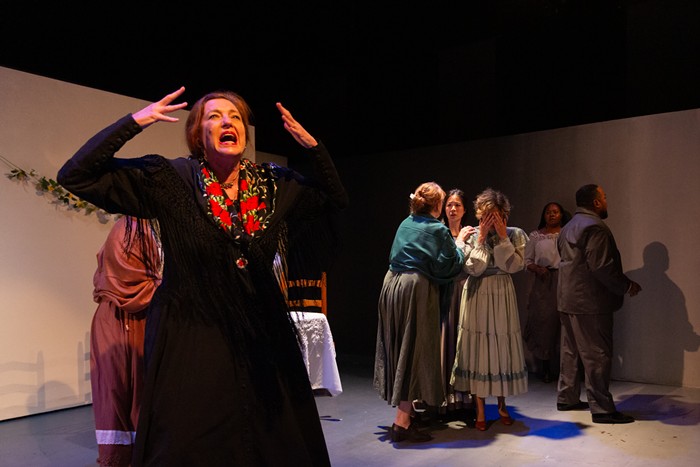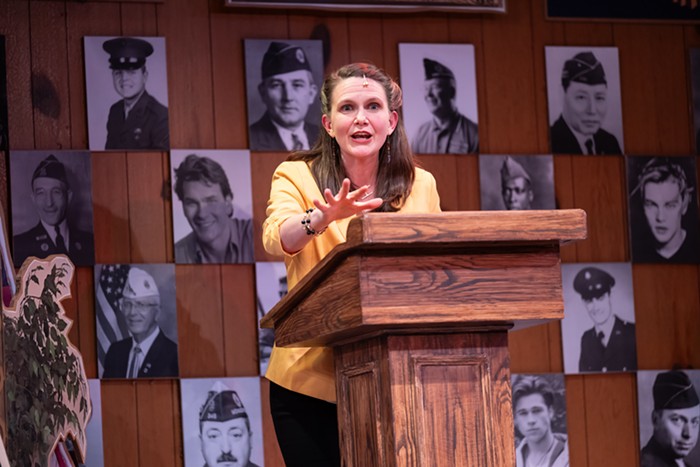There's a lot of crossing in Theatre Vertigo's Cloud 9. The casting is intentionally cross-gender, cross-age, and cross-racial. The characters cross each other in love triangles and circles and hexagons. The two acts of the play cross time and place, jumping from British-occupied Victorian Africa to a London park in present day. And since it is performed in the round at Theater! Theatre!, the audience gets to look across the room at other watchers. Also, cross-dressing.
Caryl Churchill wrote in the cross-casting, but director Jon Kretzu takes liberties with who-plays-who, which emboldens this already rich play. The double-casting illuminates a central theme: that identity is constructed, and when it is suppressed or colonized, things get screwed up. The juxtapositions are delicious: In Act I, James Sharinghousen is squeezed into the corset of Victorian femininity as Betty, all hysteria and heaving sighs. Flash forward to Act II, when a leather-clad Sharinghousen describes his method for scoring a blowjob from a twink on a 10-minute train ride.
In Act I, Edward (Robert Wyllie)—a young boy who plays with his sister's doll and pines after Harry (JR Wickman), the rugged queer explorer—is typically played by a female actress. But Kretzu thought this casting "gave the audience an out regarding the relationship between Harry and Edward." It pays off, since Wyllie portrays Edward with shattering sensitivity.
Joel Harmon seems 10 feet tall in the role of Joshua, a questionably loyal African manservant who is frightening in his dedication to and identification with his colonizers. Then in Act II, he delights as Cathy, a mouthy little girl in pigtails who loves squashing toy soldiers. Kerry Ryan was pinging my gaydar as Cathy's lesbian mother Victoria. And in another loaded casting choice, Andy Lee-Hillstrom is both the angry, articulate patriarch who chastises his flamboyant son that "through our father we love our queen and our God," and then later, he is the abused son grown up, living and loving in defiance of father and God.
Top it off with Jane Fellows as Act II Betty—a woman living without a husband for the first time in a world noticeably dominated by recently liberated women and gays, trying to find her independent identity. It's Fellows' final monologue about finding herself in an act of defiant self-love that makes this production cross the line from good to gold.



















